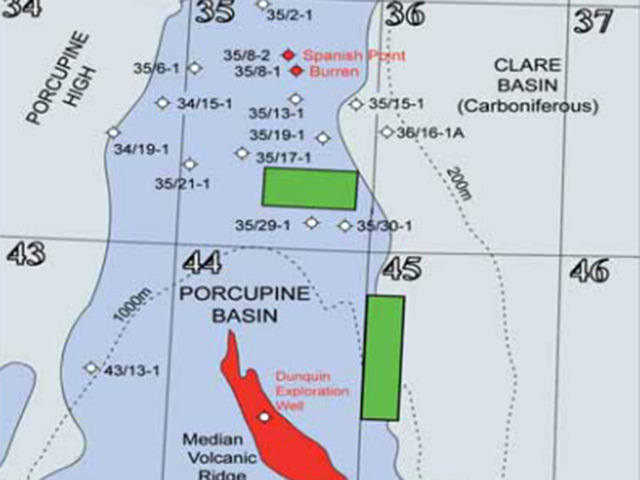
The chairman of Irish explorer laid bare his company’s enduring spirit.
Petrel Resources’ John Teeling painted a 30 year picture for his shareholders in his end of year update.
The financial filing is usually used to highlight project progress or plans to save costs. Instead, Mr Teeling told shareholders the firm was embarking on another chapter of reinvention in its 35 year history.
“Petrel has seen highs and lows with a market cap ranging from under £1 million to over £100 million. Our projects are risky and fail but over decades we have persisted through wars, political disruptions, legal challenges and geological failures,” he said.
“So it is with our present projects. Some have problems but all have great potential. We are very hopeful that the revived interest in offshore Ireland will be rewarded with a successful discovery. The money we received from selling our Iraqi interest has sustained Petrel in recent years. Shareholders have not had to provide fresh capital. We have sufficient funds for the near future.”
Petrel is an oil explorer focused on offshore Ireland and offshore Ghana with legacy interests in Iraq.
After a fallow period there is renewed interest and activity in the Irish Atlantic – particularly the Porcupine Basin. Petrel first had an interest in Irish offshore exploration in 1982.
“That failed,” according to the chairman.
A watching brief was maintained until the restructured company applied for acreage in 2011. The company was awarded two blocks in the Atlantic. These were farmed out to Woodside Energy in 2013 and converted into two Frontier Exploration Licences FEL3/14 and FEL 4/14 in January 2014. Petrel maintained a 15% interest in each licence and was carried through initial work, seismic and one well.
Woodside has conducted 3D seismic over FEL 3/14 and results are awaited.
“Following an analysis of data relating to FEL 4/14 Woodside decided to drop this licence without completing a seismic programme,” he added.
“Petrel believed this to be a breach of an agreement to conduct 900 km2 of seismic over the area. Both sides have been unable to reach agreement over the seismic issue. Arbitration is underway in London. At the same time Woodside announced they were not proceeding with FEL 4/14, they offered Petrel a carry on new ground obtained by Woodside in the 2015 licencing round. Petrel believe they had an agreement but Woodside felt unable to complete. This too will be part of the arbitration proceedings.
“We hope for a favourable outcome of arbitration. Woodside are a good partner with excellent technical skills but the board of Petrel have a responsibility to almost 2,000 shareholders.”
The company leader also gave his take on the renewed interest in offshore Ireland.
“The Irish Government in 2015 ran a very successful bid round for new licences. Some 46 were applied for by 17 companies. Petrel was awarded two licences covering 924 km2 in the Porcupine Basin,” he said.
“Why has this happened at a time of relatively low oil prices? The boom preceding the crash of 2008 had resulted in massive cost increases in offshore exploration. Wells were costing up to $200 million each. Rig rates were millions of dollars a day. The economic crash and subsequent financial crisis in many overleveraged oil companies led to a shuddering halt. Atlantic Ireland is frontier exploration. Deep water, harsh conditions, few wells drilled with no commercial oil discovered. The subsequent two thirds oil price collapse exacerbated the gloom.
“What has changed? World oil demand has continued to creep up. The oil price has recovered somewhat. Exploration costs have fallen dramatically as rig supply and services supply are greater than current demand. Technology, particularly seismic and its interpretation continues to improve. Boards of directors looking to a future ten to twenty years out, see the potential of elephant discoveries in the Atlantic. The risk return equation has moved and the Irish Atlantic is once more attractive to some – not many, but some. But note, only one well is being drilled this year and there are only vague plans for wells next year. If the Druid well is successful this year in 2,200 metres of water it will provide a huge boost to the industry. If it fails, and it is a wildcat, then the risk reward equation will be looked at again.”
Petrel made an operating loss of €257,675 for the year.